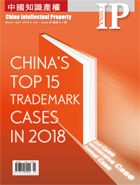CASE 6 :
E-COMMERCE PLATFORM TRADEMARK INFRINGEMENT
◆ First instance: (2017) Hu 0115 MinChu 7804
◆ Second instance: (2017) Hu 73 MinZi 331
Shanghai Municipal
[Headnotes]
To determine whether the e-commerce platform constitutes contributory infringement, first, features of the pages where the accused information is posted must be determined, then combined with the introduction of the website, background information, and other factors, reviewed and defined the service mode of the network platform, and finally clarify the duty of care of the e-commerce platform on above basis.
Based on the popularity of the brand involved and the evidence provided by the parties, it is judged whether the e-commerce platform reviews the owner or licensee of the brand that is published. If the brand involved in the case has a high reputation, even if the e-commerce platform has undergone formal review during the review process, it will pass the review without any further verification, and it should be determined that it has not fulfilled the corresponding duty of care.
[Synopsis]
Plaintiff: Xiabu Xiabu Catering Management Co., Ltd. (referred to as “Xiabu Xiabu”)
Defendant: Shanghai Fuwang Information Technology Co., Ltd. (referred to as the “Shanghai Fuwang”)
Xiabu Xiabu owns the registered trademark “呷哺呷哺” and other trademarks in restaurants and other services for the operation of hot-pot chain. From 2013 to 2016, the plaintiff won several awards in the industry. Shanghai Fuwang is the operator of “jiameng.com”, a website which introduces itself as an information distribution platform and provider of brand promotion and other services for enterprises. Enterprise registered users can post affiliate information for free, and paid members can enjoy more services. Individual registered users can enjoy consulting, entrepreneurial advice, and other services. Searching “呷哺呷哺加盟 (Xiabu Xiabu Alliance)” on Baidu, users will find the link to Shanghai Fuwang. When users search for information on the defendant’s website, they see that the words “呷脯呷哺” are used in many places, and introduction, name, registration date and other information of the program are listed as “approved”. Shanghai Fuwang deleted the affiliation information after receiving the litigation materials. Xiabu Xiabu said that the defendant conducts affiliate publicity, cheats the public, and infringes the plaintiff’s trademark right in the name of the plaintiff. Shanghai Fuwang said that the website of the defendant is a joint information distributing platform, and the information of the involved project is released by their registered users which constitutes non-trademark use of “呷脯呷哺”. The defendant had fulfilled its duty of care regarding the involved information and did not know and had no reason to know the existence of the involved webpage. The defendant deleted the information after receiving the litigation materials which means that the defendant does not constitute infringement.
Pudong Court held that the joining information was released on Shanghai Fuwang website without the consent of the plaintiff, which constitutes using similar trademarks with the plaintiff on the same service. Above behavior is easy to cause confusion among the relevant public and constitutes trademark infringement. Judging from the business model of Shanghai Fuwang, the specific content of the website, the background information of the website, and other information, the joining information was indeed posted by registered users of the defendant’s website. However, as an operator of the professional information distributing platform, Shanghai Fuwang should fulfill its higher duty of care than the operators of comprehensive information distributing platform and take necessary measures to conduct appropriate reviews of the publisher identity, brand ownership, and authorization status. In this case, the trademarks of Xiabu Xiabu have a high reputation in its business field, however, Shanghai Fuwang had reviewed and approved the information without any audit on whether the involved joining information publishing entity has business license whether the entity is the owner or licensee of the brand it publishes, etc. Thus it can be seen that Shanghai Fuwang did not pay due attention to the brand information may be involved in the infringement. At the same time, Shanghai Fuwang also provided some promotion services which provided further help for the infringement in the case. Therefore, Shanghai Fuwang did not fulfill its duty of care that matches its business model, and their behavior constituted the contributory infringement cited in Article 57 paragraph 6 of the Trademark Law. According to the law, Shanghai Fuwang shall bear the tort liability of stopping damage, removing influence, compensating the loss, etc. However, since the accused infringing behavior had stopped, it is not necessary to stop the behavior by the judgment. The court ordered Shanghai Fuwang to compensate Xiabu Xiabu 100,000 Yuan, and put a statement on the front page of its website to eliminate the impact. After the judgment, Shanghai Fuwang filed an appeal, but the second instance judgment rejected the appeal and maintained the original judgment.
[Judge's Comment]
The e-commerce platform economy is a key development area of the free trade zone. Strengthening IP protection of e-commerce platform is an important part of the judicial protection of IP rights in the free trade zone. In the trial of the dispute involving the e-commerce platform accused of infringing IP rights, the court clarified the duty of care of the e-commerce platform based on features of the pages where the accused information is posted, combined with the introduction of the website, background information, and other factors, review and definition of the service mode of the network platform. The operator of the professional information distribution platform in specific field should fulfill its higher duty of care than the operators of comprehensive information distribution platform. The defendant did not fulfill its duty of care that matches its business model, and their behavior constituted contributory infringement. The judgment proposed in this case is based on the standard of fault examination and seeks to promote the attention of e-commerce platform operators to strengthen their duty of care to match their business model. It is promoting healthy and orderly development of e-commerce platform economy.




